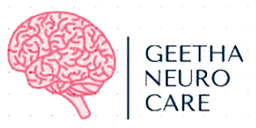What is a stroke?
A stroke happens when the flow of blood to the brain is hindered. It is a medical emergency, since blood carries oxygen, and brain cells start to expire within a few minutes without it. Get the brain stroke treatment in Bellary at neurology hospital from best doctor for brain stroke in Ballari
There are two types of stroke:
- Ischemic stroke.
- Hemorrhagic stroke.

What are the symptoms?
The sooner an individual having a stroke gets care, the better their result is probably going to be. Thus, it's useful to know the indications of a stroke so you can act rapidly. The symptoms of Stroke can include:
- Loss of motion/Paralysis
- Weakness or numbness in the arm, face, and leg, particularly on one side of the body
- Trouble in understanding or speaking with others
- slurred speech
- disarray, confusion, or absence of responsiveness
- unexpected changes in behaviour, particularly increased agitation
- vision issues like trouble seeing in one or both the eyes with vision blackened or obscured, or double vision
- trouble in walking
- loss of equilibrium or coordination
- dizziness
- extreme, abrupt headaches with an obscure reason
- seizures
- vomiting/ nausea
What is the treatment and options for stroke?
Treatments for stroke rely upon the type of stroke.
The primary treatment at best brain stroke hospital in Ballari for an ischemic stroke is alteplase, or tPA, a thrombolytic drug or "cluster buster." It can rapidly break up or disintegrate blood clots that are obstructing blood stream to the brain. This medication should be begun within a couple of hours after stroke symptoms initially show up.
For an ischemic stroke, Dr. Siddarth S. Joshi may likewise carry out an endovascular catheter-based procedure, in which a long, thin cylinder is pushed through a blood vessel into your brain to eliminate an enormous blood clot.
Medicines for a hemorrhagic stroke incorporate controlling blood pressure and halting any prescriptions that could increment the bleeding, including warfarin and aspirin. You may likewise get a blood transfusion with blood clotting factors to quit continuous bleeding.
Moreover, a hemorrhagic stroke might require an endovascular technique or medical procedure to help stop and forestall further bleeding.
